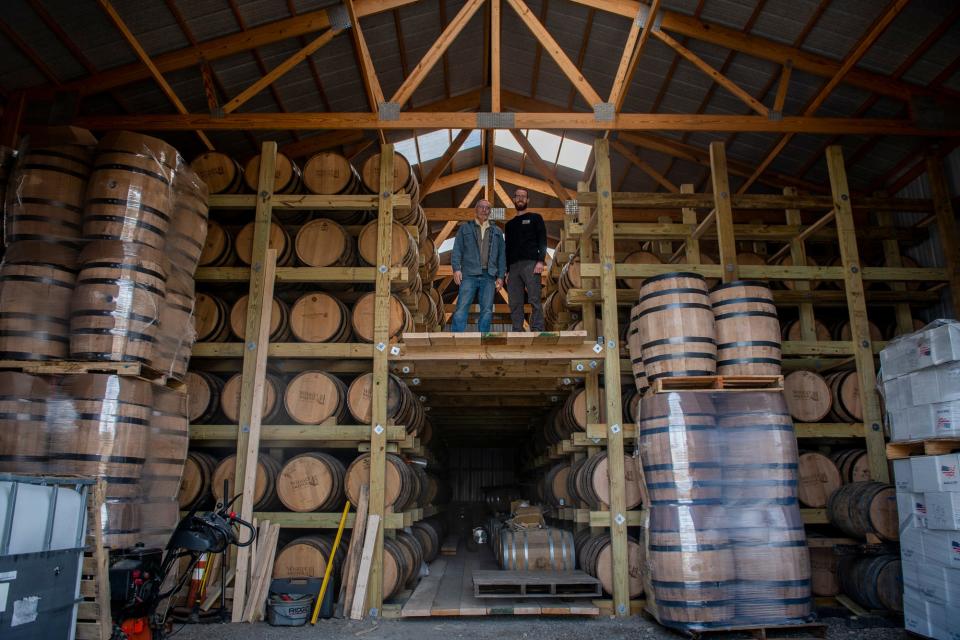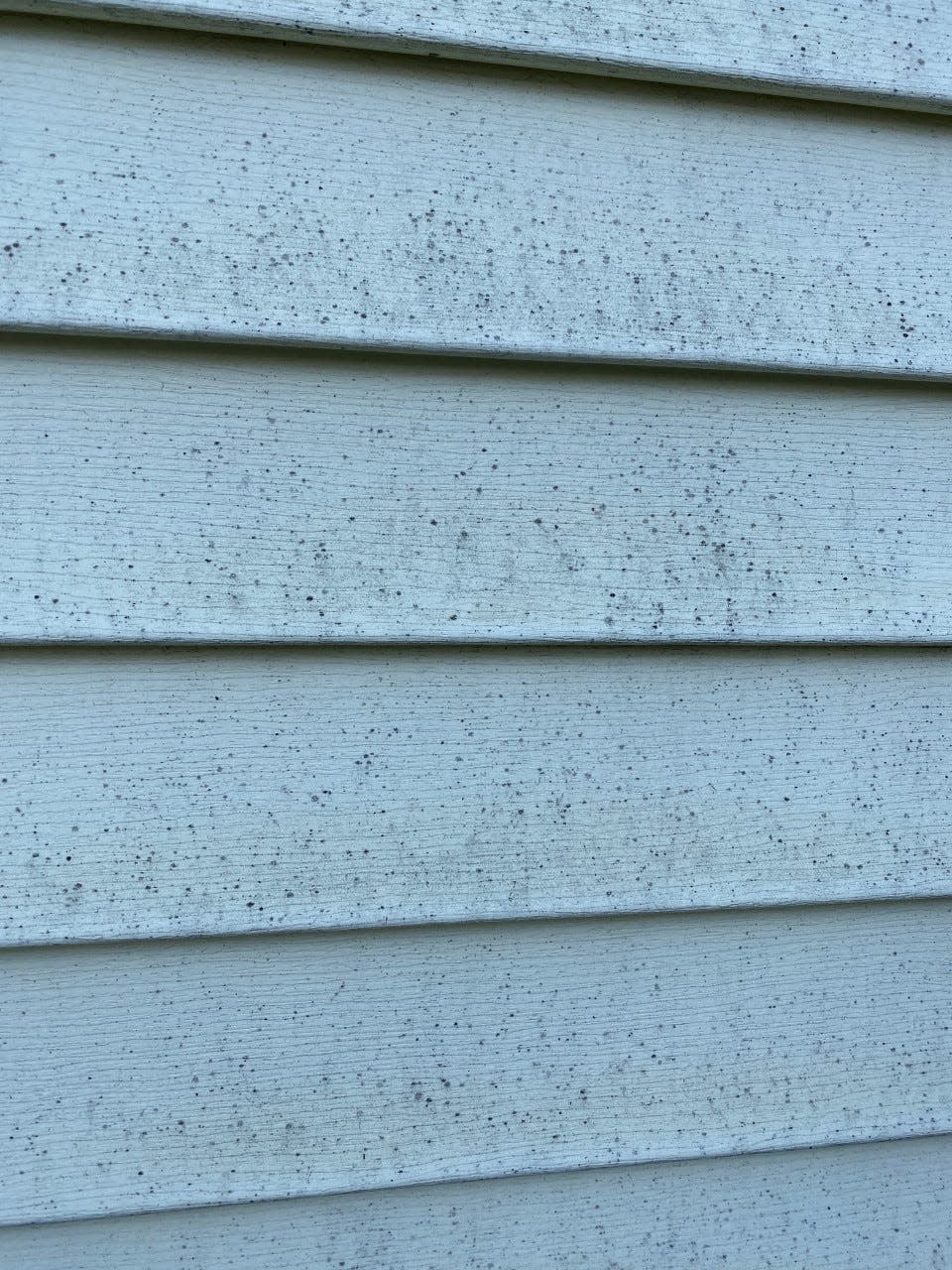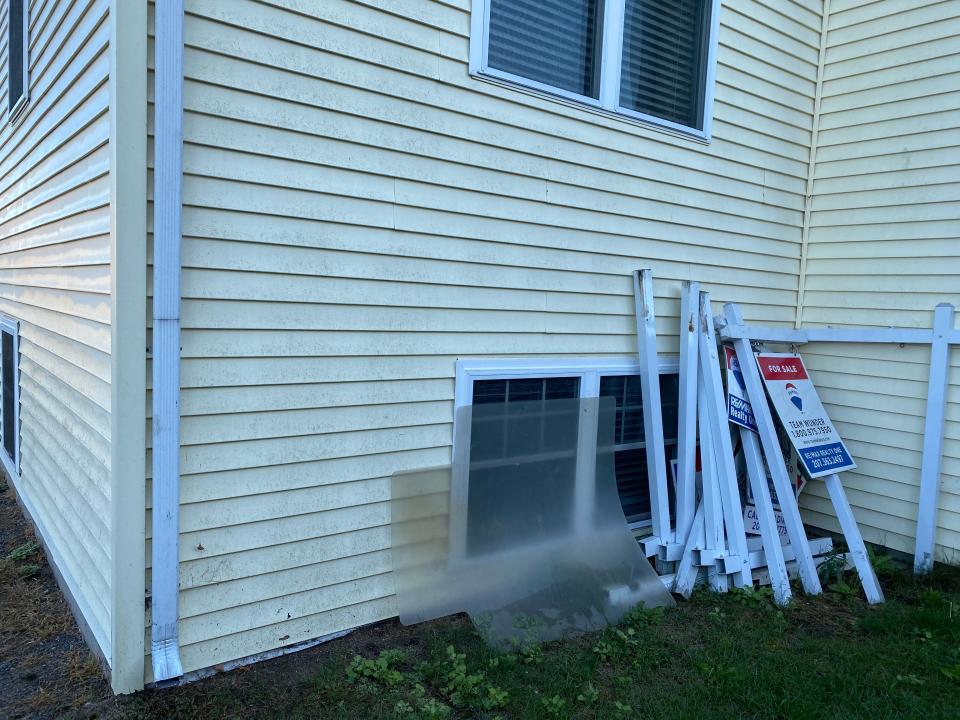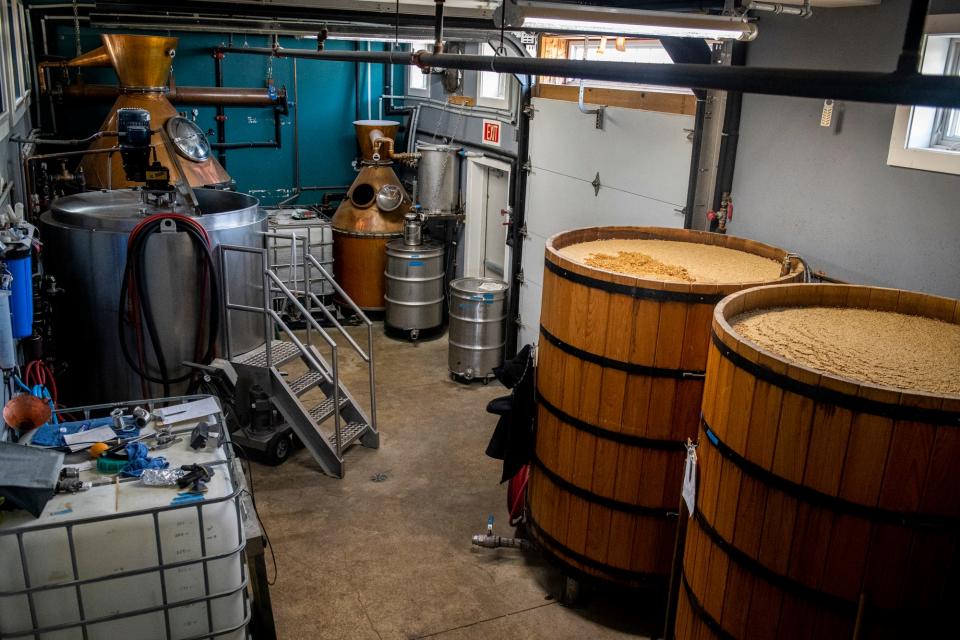Wiggly Bridge Distillery disputes study claiming it's to blame for whiskey fungus in York
YORK, Maine — Wiggly Bridge Distillery is challenging a recent University of Maine report alleging whiskey fungus is growing due to alcohol aging at its Route 1 location.
Alex Maxwell, an engineering planner with a firm hired by the distiller, told Planning Board members Thursday, Aug. 24 that clustering identified near Wiggly Bridge Distillery by the university study did not prove the business is the source. The distillery is seeking approval to expand its whiskey facility, and neighbors have said they are concerned it will increase the amount of nearby black fungus called Baudoinia.
“There are several other potential sources within the study area that weren’t necessarily factored into a regression analysis,” Maxwell said, “where you could parse out other potential causes of fungal growth.”

The rebuttal from Wiggly Bridge’s team will be considered at the Sept. 28 Planning Board meeting. Board members said they did not receive the new information from the applicant with adequate time to consider it at their meeting Thursday.
A room filled with residents concerned about the fungus expressed frustration with the decision to continue. Wiggly Bridge applied to build two new barrel houses and expand their facility last year, and the fungus has been the center of discussion. The board’s last meeting was continued because their 10 p.m. deadline to stop impeded their ability to hear Wiggly Bridge.

The concern for the presence of Baudoinia, known as “whiskey fungus,” has led the board to scrutinize whether any nearby fungus is caused by the distillery. The board plans to use the study to examine whether it violates the town’s ordinance against “dust, fumes, vapors and gases” that can affect neighboring properties.
Board members say this is the only question remaining in Wiggly Bridge’s application process, which the distillers say is necessary to grow their business. Residents say they fear their property values and public health are at stake. The Woods family that owns the distillery has argued science provides no evidence that Baudoinia is dangerous.
“You all understand,” Planning Board member Peter Smith told the audience, “We have to be fair to both sides.”
ViewPoint: Hotel in York unveils hillside rooms with stunning Nubble Lighthouse views
Wiggly Bridge’s expert: No evidence distillery is source of fungus
Maxwell, speaking from the firm Fuss and O’Neil, told Planning Board members his team was tasked with analyzing the validity of the study of Baudoinia from the University of Maine. The study was commissioned by the Planning Board specifically to determine if Wiggly Bridge Distillery was the source. Its finding claimed Wiggly Bridge was likely the cause of the whiskey fungus presence.
Maxwell told board members they found the study’s sampling methodology was “problematic,” and that incorrect procedure resulted in the clusters that appeared in their results. The study took 100 samples from around the distillery.

Maxwell also said the biggest concern was the study did not account for other potential sources of the fungus in the area. The Woods family has argued other sources of ethanol cause the fungus to grow, including nearby bakeries.
“Our biggest thrust to the argument is that there really wasn’t a controlled progression analysis done to account for other potential contributing factors to the carbonaceous feedstock needed to grow the fungus,” Maxwell told board members.
Norma’s Restaurant: How Norma Clark’s breakfast spot became a favorite for York veterans
Applicants, residents express frustration with delays
Planning Board members did not respond to the presentation, as they said they would read the material presented by Wiggly Bridge and consider it at the meeting in September. They said they would have Tora Johnson, who was behind the University of Maine study, look at their comments and respond.
Both members of the audience and the Woods family expressed a desire for the process to speed up. The Woods family asked the Planning Board to waive their requirement that new information be submitted 17 days before the meeting.
“It is our interpretation of reports done,” David Woods II told board members, referring to the report from the University of Maine. He insisted the information from Wiggly Bridge’s analyst was not so new to warrant a delay in its review. He and his father also argued they only received information from Johnson of the University of Maine the day it was presented.
More: Pickleball club drops court expansion in York after neighbors complain about noise
Board members said they needed to continue the meeting because they wanted to give the public a chance to review their response.
“It’s unfair to the public for them to not have a chance and a go at it, and have their professionals look at it,” said Planning Board member Meredith Goodwin.

Residents who went to the meeting were not happy with the board’s eagerness to continue the application until September.
“I am so disappointed that this is being pushed for another month again,” said Carolyn Zotos in the public hearing section of Thursday’s meeting. She was one of several who spoke, saying they had concerns their homes would become covered with whiskey fungus-like communities in states like Kentucky and Tennessee.
“This could be York,” said Beth Downs of 1 Woodcock Lane. She held up a picture she said showed a community in Kentucky near the Jim Beam manufacturer.
“This is what happens. We know this. We’ve seen it. There are many lawsuits,” Downs said.
Board members asked residents to remain patient as they prepared to deliberate for at least another month.
“We have to follow a process,” Boardman said. “Sometimes it's agonizingly slow.”
The Bar Next Door in York: Central Bean owners rebrand café with new restaurant
This article originally appeared on Portsmouth Herald: Wiggly Bridge Distillery fights back against whiskey fungus claims

